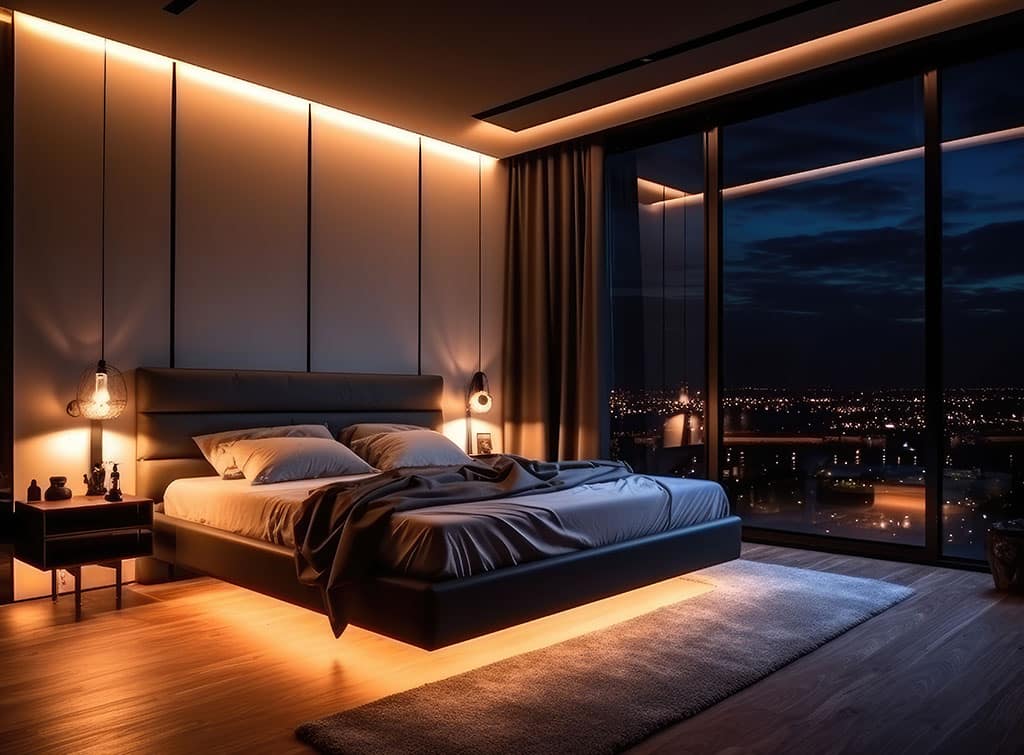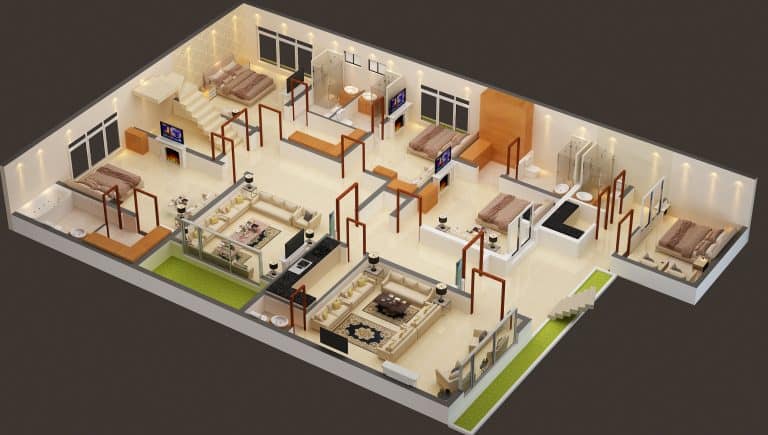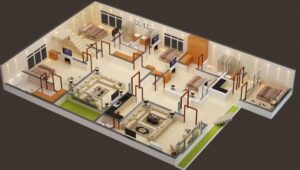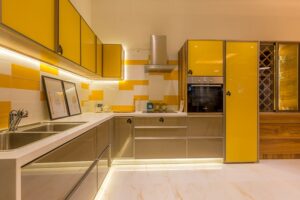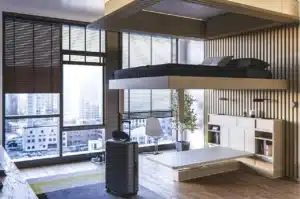What Is the Difference Between a Modular and Civil Kitchen?
In the realm of kitchen design, two prominent styles have taken center stage – the modern marvel of modular kitchens and the timeless appeal of civil kitchens. Each style comes with its own set of features, advantages, and considerations. Let’s delve into the intricacies of these two kitchen types to help you make an informed decision for your culinary space.
Introduction
Kitchens are the heart of any home, and choosing the right design is crucial. The debate between modular and civil kitchens often arises when planning a kitchen makeover or a new construction project. Understanding the fundamental differences can make this decision more straightforward.
Modular Kitchen Features
Modular kitchens are renowned for their sleek, contemporary designs and functional layouts. One of their standout features is the high level of customization they offer. Homeowners can tailor their modular kitchens to suit their specific needs and preferences. These kitchens are characterized by space-efficient designs that maximize storage and utility.
Civil Kitchen Characteristics
On the flip side, civil kitchens embrace a more traditional approach. Fixed components and a classic layout define these kitchens. While they may lack the flexibility of modular kitchens, civil kitchens exude a timeless charm that resonates with those who appreciate classic aesthetics.
Cost Considerations
When it comes to costs, modular kitchens often require a higher initial investment due to their modern features and customization options. However, civil kitchens might prove more cost-effective in the long run, with lower maintenance expenses and fewer technological components.
Installation Process
The installation process also sets these kitchen types apart. Modular kitchens are known for their quick and efficient installations, while civil kitchens may involve a more time-consuming setup due to fixed components and intricate detailing.
Durability and Maintenance
In terms of durability, modular kitchens often boast materials that are resistant to wear and tear. Civil kitchens, while durable in their own right, may require more meticulous care and maintenance. Understanding the materials used in each type is crucial for long-term satisfaction.
Adaptability to Space
Modular kitchens shine in smaller spaces, where their design flexibility allows for optimal use of every inch. On the other hand, civil kitchens find their place in larger areas, where their classic layout can complement the expansive surroundings.
Technological Integration
Modern living often demands technological integration, and modular kitchens excel in this aspect. Smart features and innovative appliances seamlessly blend into the modular kitchen aesthetic. Civil kitchens, however, may not offer the same level of technological convenience.
Trends in Kitchen Design
Current trends heavily favor modular kitchens, with their clean lines, minimalist aesthetics, and ergonomic designs. Civil kitchens, while timeless, may lack the modern appeal that resonates with contemporary homeowners.
Pros and Cons Comparison
As with any choice, both modular and civil kitchens come with their own set of pros and cons. Modular kitchens offer flexibility and modernity but may be costlier. Civil kitchens provide classic beauty and potentially lower long-term costs but may lack some modern conveniences.
Environmental Impact
For the environmentally conscious, modular kitchens often incorporate sustainable materials and energy-efficient appliances. Civil kitchens, rooted in tradition, may not always prioritize eco-friendly options.
Personalization and Style
Expressing personal style is easier with modular kitchens, where customization options are vast. Civil kitchens, while classic, may be influenced by cultural and regional styles, limiting personalization.
Resale Value
Consideration for resale value is vital. Homes with well-designed modular kitchens may attract a premium, reflecting the modern preferences of potential buyers. However, civil kitchens, with their timeless charm, can also hold appeal in the real estate market.
Conclusion
Choosing between a modular and civil kitchen ultimately depends on your lifestyle, preferences, and budget. The sleek, modern appeal of modular kitchens competes with the timeless elegance of civil kitchens. Consider your priorities, weigh the pros and cons, and make a decision that aligns with your vision for the heart of your home.
Conclusion Paragraph
In conclusion, the difference between a modular and civil kitchen extends beyond aesthetics. It encompasses lifestyle, budget, and personal preferences. Whether you opt for the contemporary allure of a modular kitchen or the classic charm of a civil kitchen, your choice should reflect the heart and soul of your home.
FAQs
Are modular kitchens more expensive than civil kitchens?
The initial investment for modular kitchens is typically higher, but long-term costs may vary.
Do civil kitchens require more maintenance?
Civil kitchens may require meticulous care, depending on the materials used.
Can a modular kitchen fit in a small space?
Yes, modular kitchens are designed for space efficiency and can work well in smaller areas.
Are civil kitchens outdated in terms of design?
Civil kitchens exude timeless charm, but their design may not align with modern trends.
Do modular kitchens impact property resale value?
Homes with well-designed modular kitchens can attract a premium in the real estate market.



